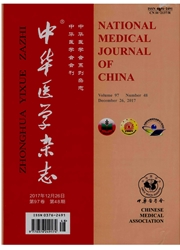

 中文摘要:
中文摘要:
目的 评估高频振荡通气(HFOV)对急性呼吸窘迫综合征(ARDS)患者预后的影响.方法 联机检索MEDLINE、Embase、Web of Science和CNKI等中英文数据库,收集1970年1月至2013年5月HFOV治疗成人ARDS的英文和中文临床随机对照研究(RCT)文献,按纳入与排除标准选择文献,采用RevMan 5.0软件对数据进行荟萃分析.结果 共纳入6篇RCT文献,入选1 634例ARDS患者,HFOV治疗组827例,常规机械通气治疗(CMV)对照组807例.将HFOV对成人ARDS患者住院或30 d病死率进行荟萃分析:与CMV相比,HFOV不能降低成人ARDS患者住院或30 d病死率,OR值=0.95 [95%可信区间(CI)0.62~1.46,P=0.83].结论 与CMV相比,HFOV不能改善成人ARDS患者的预后.
 英文摘要:
英文摘要:
Objective To evaluate the effects of high-frequency oscillatory ventilation (HFOV) on mortality in patients with acute respiratory distress syndrome (ARDS).Methods Randomized controlled trials (RCTs) of HFOV as compared with conventional mechanical ventilation (CMV) in adult patients with ARDS from January 1970 to May 2013 were recruited.The data were analyzed with the methods recommended by the Cochrane Collaboration's software RevMan 5.0.Results Six RCTs using HFOV in adult patients with ARDS were collected for analysis.Among 1 634 eligible ARDS patients,827 of them were enrolled into HFOV group and the reminder into CMV group.Meta-analysis revealed HFOV did not significantly decrease the hospitalization or 30-day mortality of adult ARDS patients (OR =0.95,95% CI 0.62-1.46,P =0.83).Conclusion Compared with CMV,HFOV dose not improve prognosis in adult patients with ARDS.Thus more high-quality RCTs with larger samples are warranted.
 同期刊论文项目
同期刊论文项目
 同项目期刊论文
同项目期刊论文
 期刊信息
期刊信息
